Advertisement
Edward M. Kennedy Institute Opens With A Lofty Goal: Restoring Respect For Congress
Resume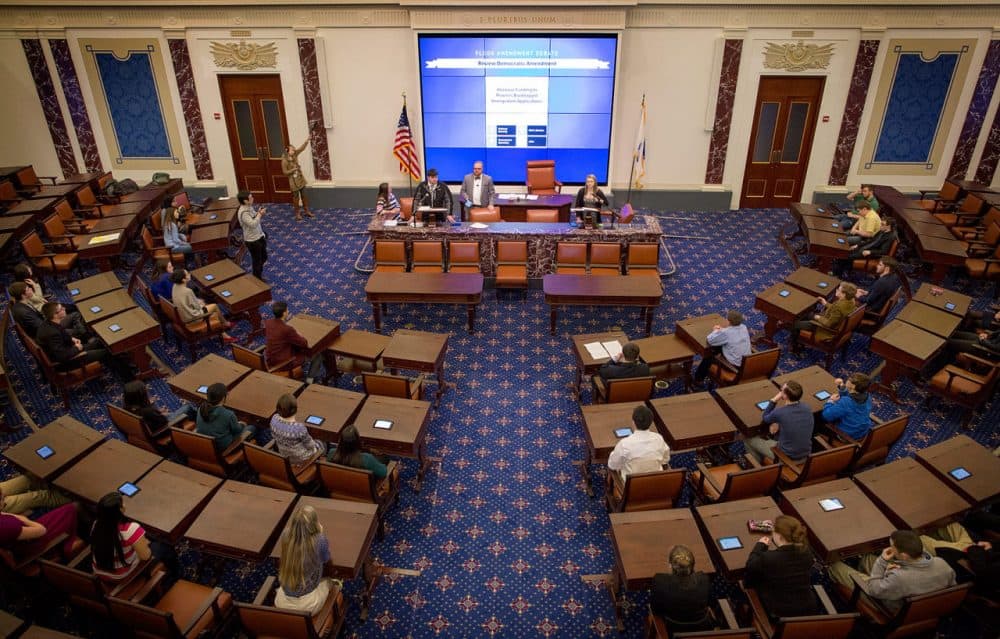
The Edward M. Kennedy Institute for the United States Senate opens its doors Monday with grand political fanfare. President Obama, Vice President Joe Biden and Arizona Sen. John McCain are just a few of the politicos attending the formal dedication ceremony at Columbia Point in Boston. (We'll broadcast the event live at 10 a.m.)
That the guest list includes a mix of high-profile Democrats and Republicans is no coincidence: The center opens its doors with the lofty goal of restoring respect for Congress at a time when its approval rating is just 18 percent.
But bipartisan dealmaking was Sen. Ted Kennedy's hallmark attribute, and the institute is trying to rekindle that spirit. It's a teaching facility geared toward students with the mission of helping them understand, and maybe even appreciate, governance.
"They learn how difficult it is to pass legislation," explained Victoria Kennedy, Ted's widow, who serves as president of the institute's board of directors. "Our founders planned it that way. So you have a different look at Washington. You say, 'Well, it really was intended to be difficult.' "
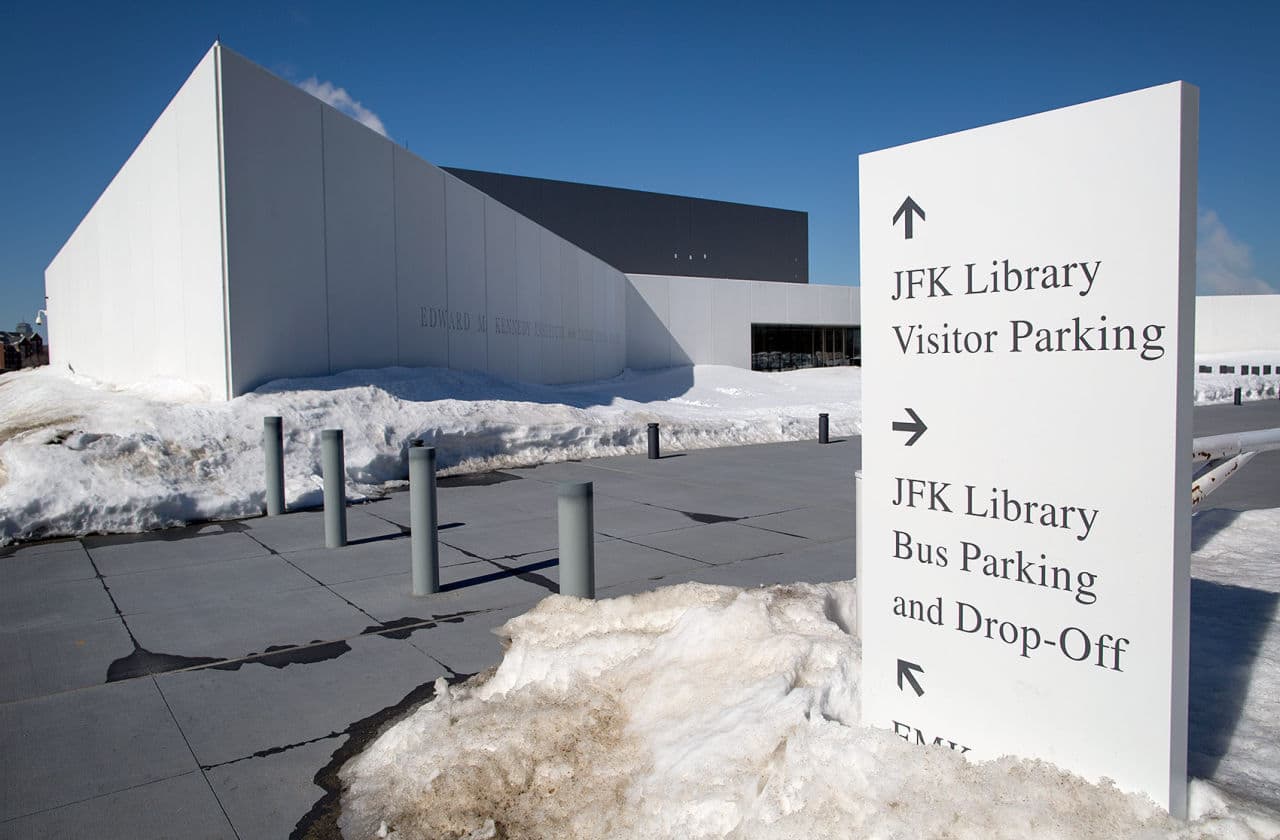
The museum, if you can call it that, is high-tech and virtual, yet simultaneously steeped in political tradition.
The one-story building is fairly simple from the outside: a polished white facade adjacent to the John F. Kennedy Presidential Library and Museum on the UMass Boston campus.
But inside all the exhibits revolve around a replica of the U.S. Senate chamber — a majestic room with gilded wallpaper and wooden desks modeled off the original congressional furniture.
The chamber is the epicenter of the institute and it's where most of the activity happens, with daily mock legislative debates. On a recent day, teenagers from Quincy were experimenting with new simulation software, trying to craft a comprehensive immigration reform bill.
The high schoolers were role playing as U.S. senators, arguing over an amendment to establish a biometric tracking system for immigrants.
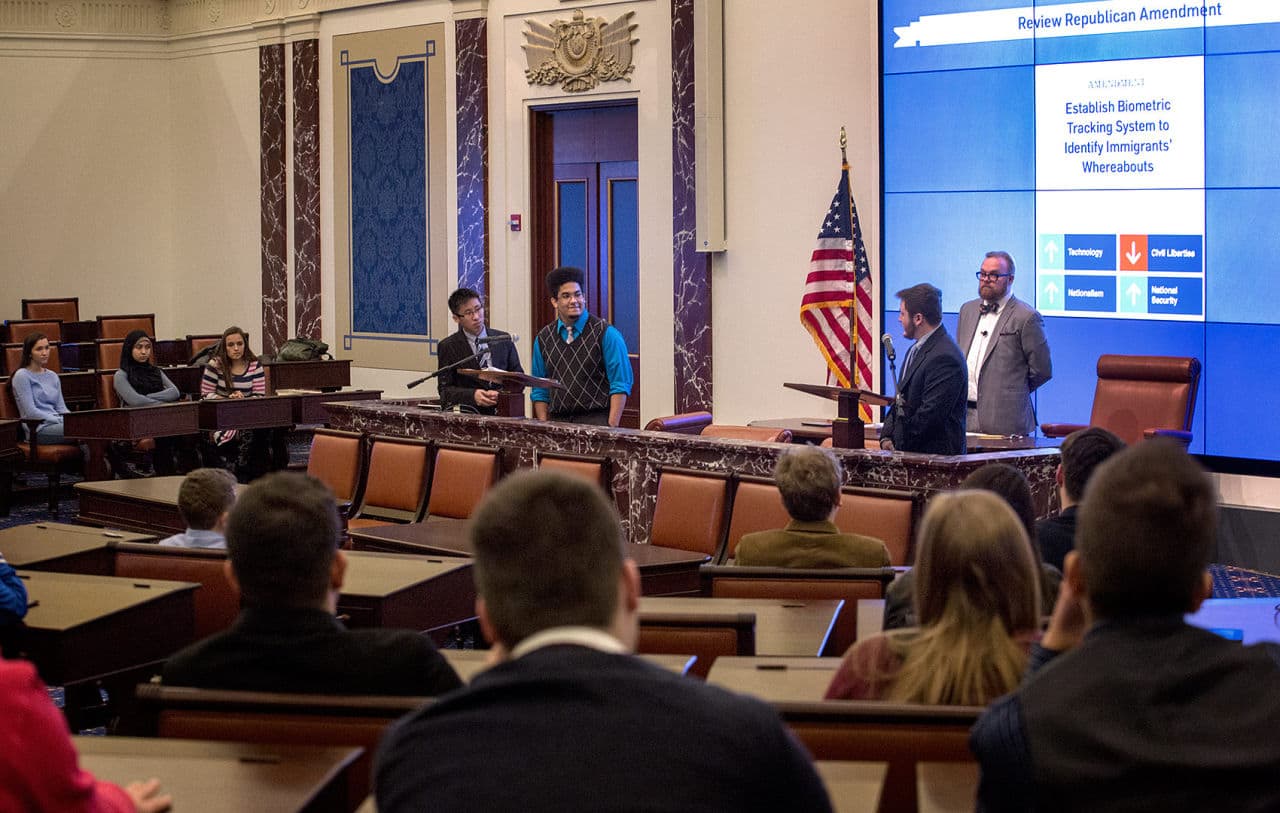
The amendment passed, which displeased some "senators," who then began booing.
Matt Wilding, who runs these immersion simulations at the institute, calmed them down.
"Traditionally, folks, we don't boo in the Senate, we hiss," he explained. And so the teenage senators dutifully started hissing instead.
They then tried lobbying one another to swing votes.
"In an ideal world, we wouldn't have any illegal immigrants," 17-year-old Suhail Purkar told a classmate. Purkar was pretending to be a Democrat from Maryland and he was trying to sell the benefits of this comprehensive immigration reform bill.
"It increases jobs, education, businesses, technology," he said.
"I don't care about that, I care about our jobs, not foreign jobs," his classmate responded.
This sort of partisan bickering may be normal in the real Senate, but in the fake chamber the goal is to teach cooperation and negotiation, according to Ed Schlossberg, who created the visitor experience at the Kennedy Institute with his firm ESI Design. (Schlossberg is married to Caroline Kennedy.)
"I think people have an idea about government that it's all about a bureaucracy. But really, the way our government's structured is the idea of having people collaborate and make it better by their collaboration," Schlossberg said, before admitting that "it doesn't always work that way."
The Senate's dysfunctional reputation is why Schlossberg thinks this legislative simulation is so valuable. It's an educational tool that could help folks understand why Congress is deliberative by nature.
"A good senator is someone who can compromise and work with different groups and make things happen," he said.
The institute's president, Jean MacCormack, agrees.
"If we're in a gridlock [in the real Senate] because we can't find common ground, then we need to develop some of those skills that help common ground to be developed," she said.
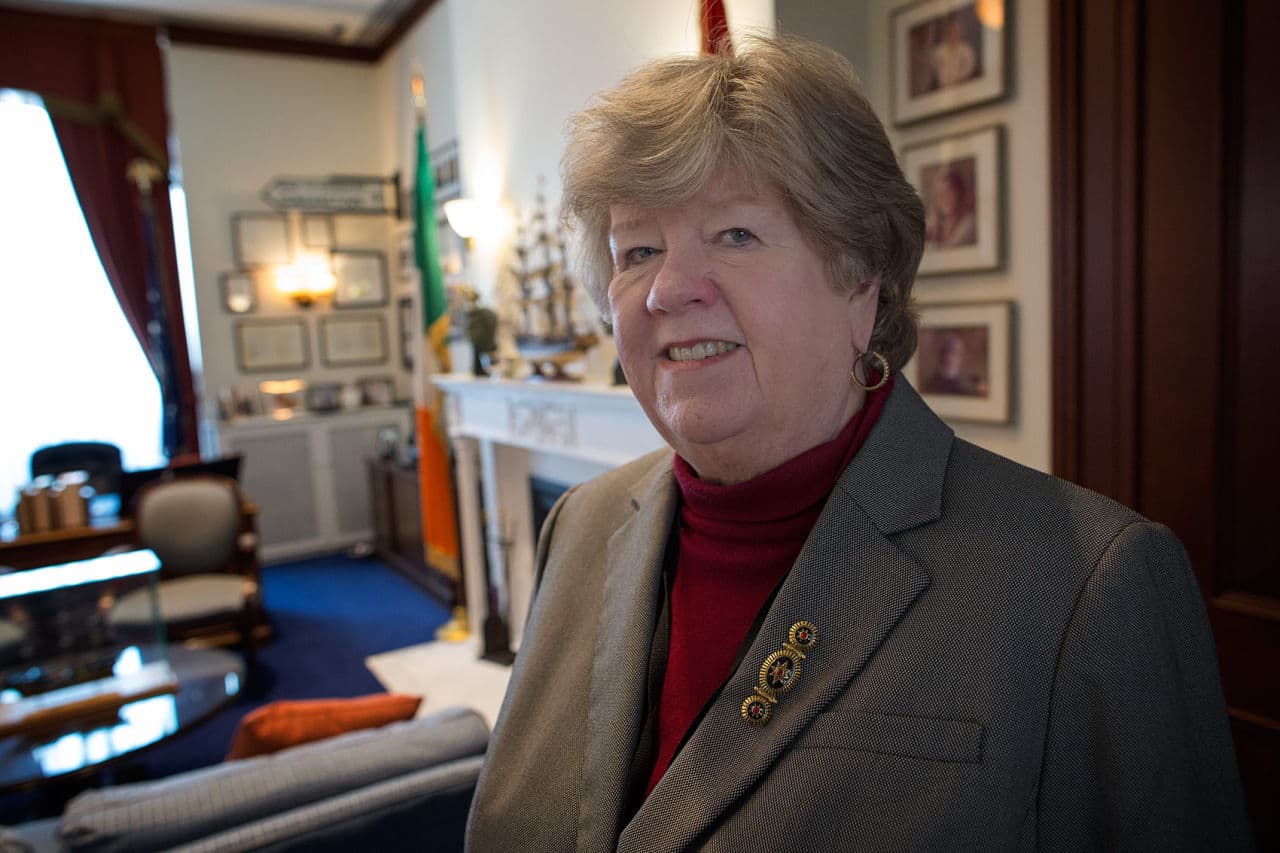
In addition to immigration, the institute is creating a number of other legislative simulations that deal with the Compromise of 1850, the Patriot Act, the Farm Bill and health care. These simulations are written by universities and research groups, such as the Heritage Foundation, Boston College and the McConnell Center at the University of Kentucky.
"So this is in a sense the arts being created by the audience," Schlossberg said.
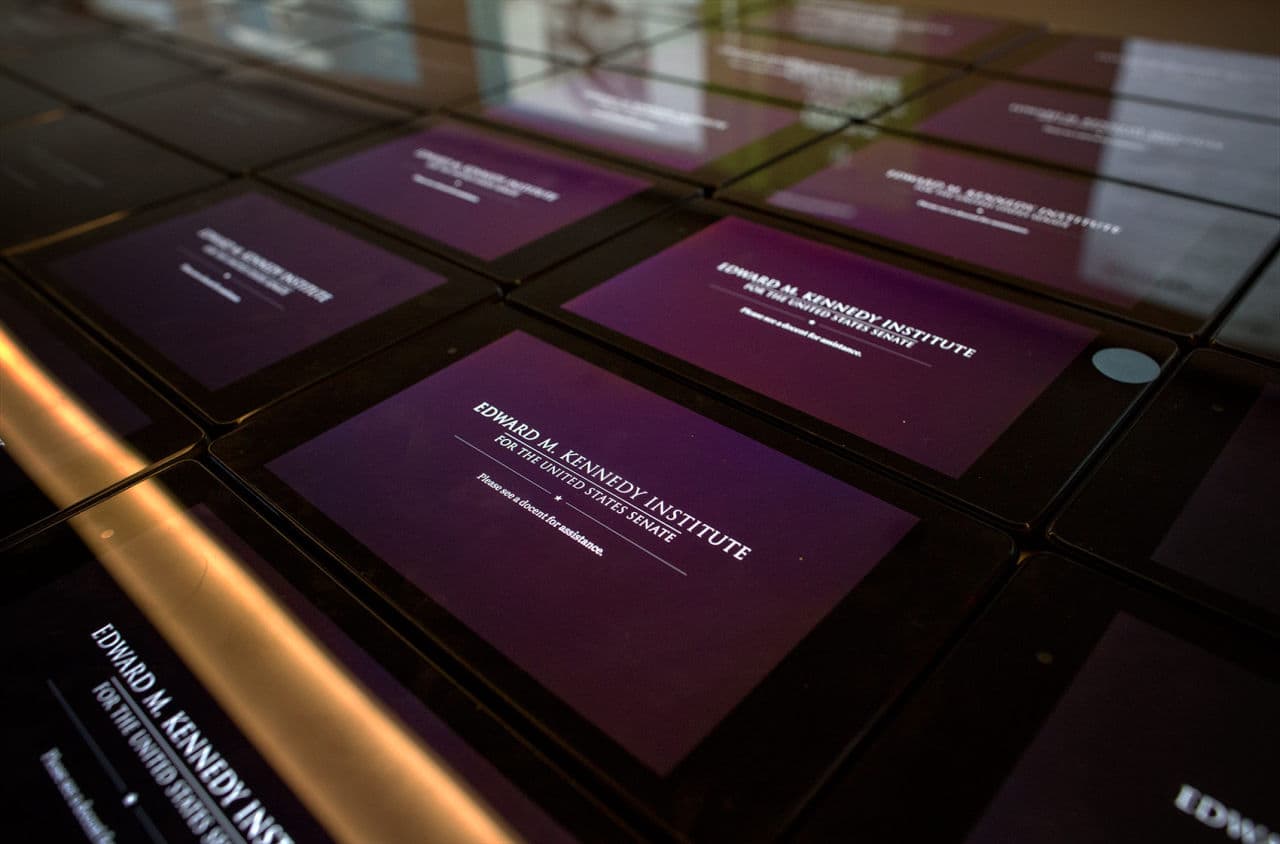
The replica of the Senate chamber is clearly the main attraction, but the institute also includes exhibits about the people, history and structure of the Senate.
Though to be honest, the word "exhibit" is a bit of an interpretation. The institute is experimenting with new technology, so each exhibit is a display on the wall that can be explored interactively with a tablet.
One of the only traditional museum spaces is a model of Sen. Kennedy's office, in which audio of his booming voice fills the room as recordings of his famous speeches play.
"This was the office he had just before he died," MacCormack said. "And as you can see in the office there are many, many family mementos. There's some very cute letters from his mother correcting his grammar."
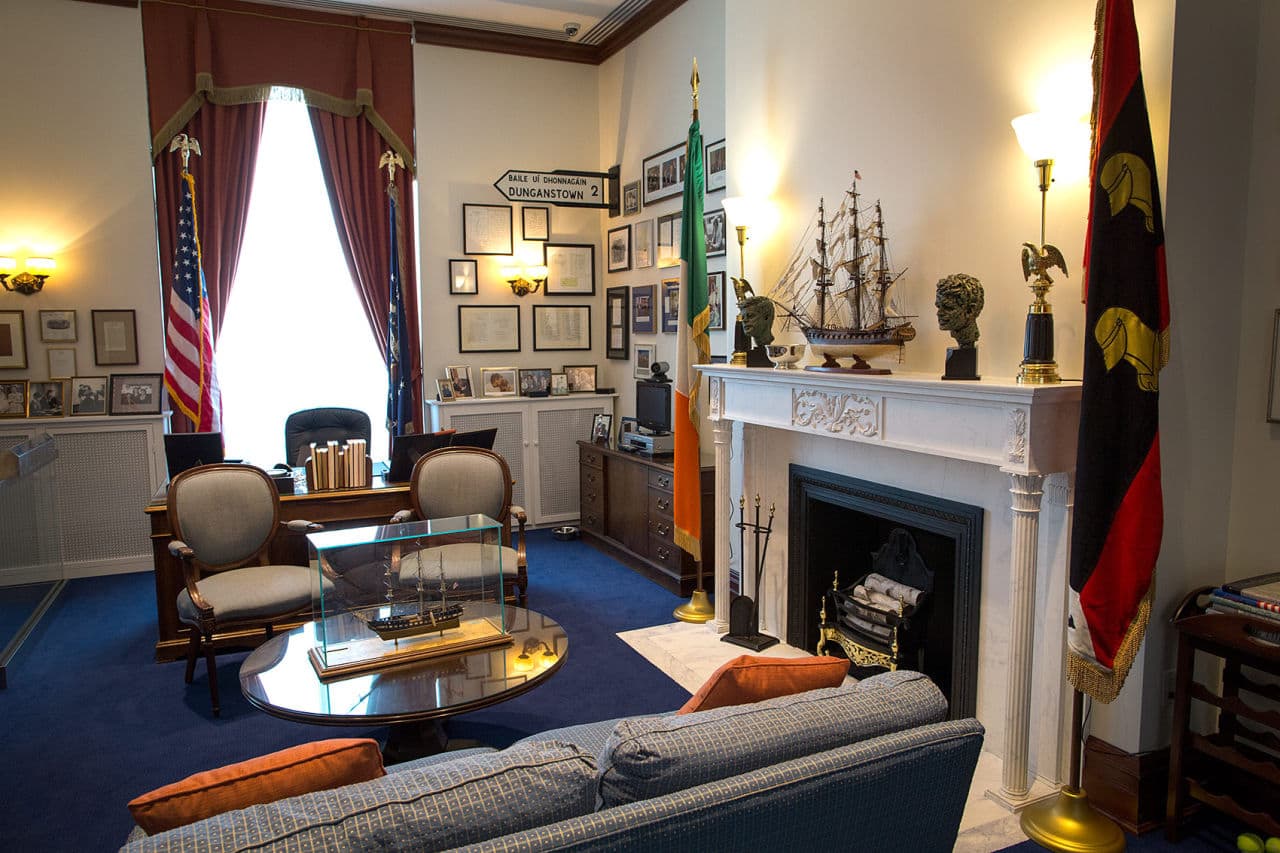
MacCormack was also keen to point out a few pictures in the next room.
"These are Sen. Kennedy's own paintings," she said gesturing to a wall of seascapes. "Most people don't know that Sen. Kennedy was himself an artist."
But most of this virtual museum does not celebrate Kennedy or his legislative accomplishments. Instead it celebrates the process of government, which is what he wanted, according to his widow Victoria.
"Ted Kennedy loved the Senate, and he wanted a place where young people could learn to feel the same way," she said.
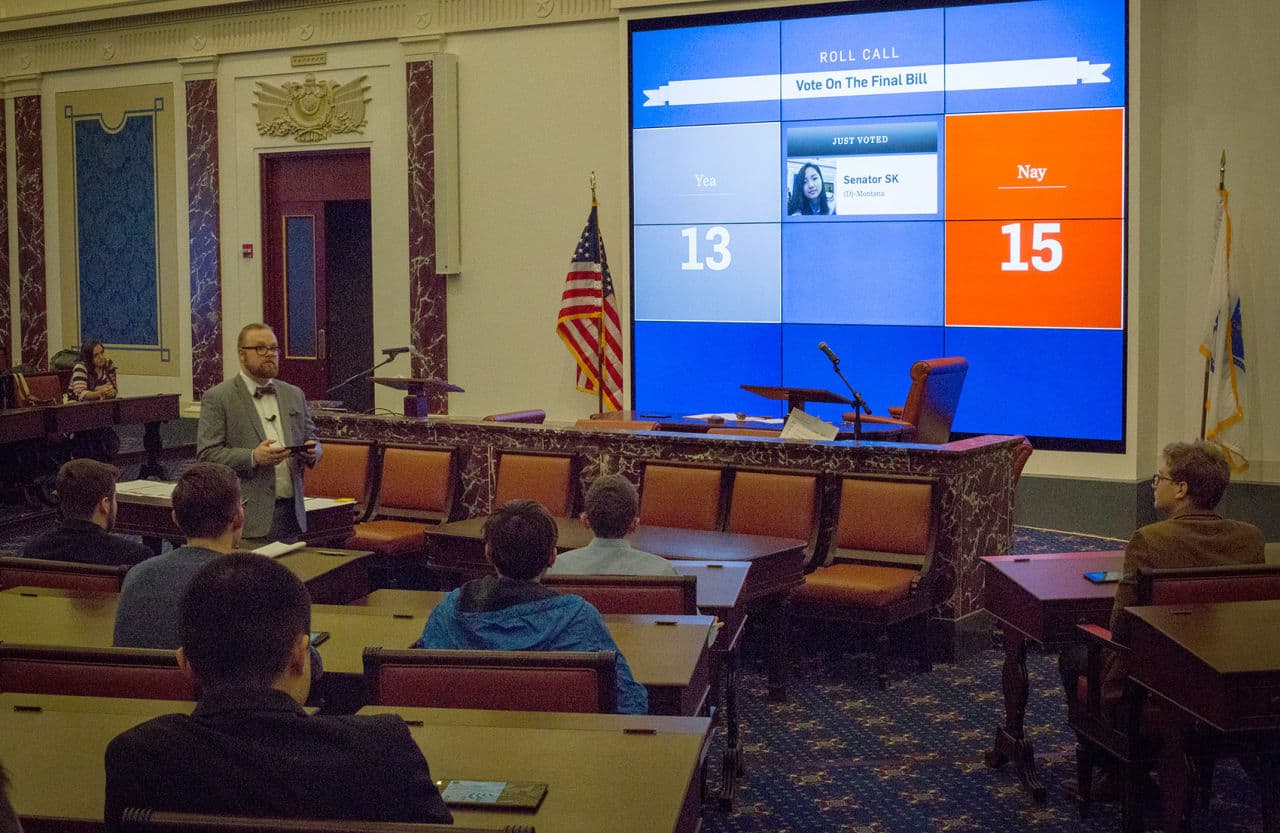
Some of those young people could be those Quincy High School students trying to pass an omnibus immigration reform package in the replica Senate chamber.
After a couple hours of debating and dealmaking, they were ready for a final vote.
Wilding, the simulation coordinator, took roll call as each senator yelled out "yay" or "nay."
And the students eagerly peered around the room as the vote count popped up on a large screen in the front of the chamber. They could tell it was going to be close.
The last vote cast was a Democrat from New Mexico: "nay."
And that meant the nays had it, 36-32. The bill failed.
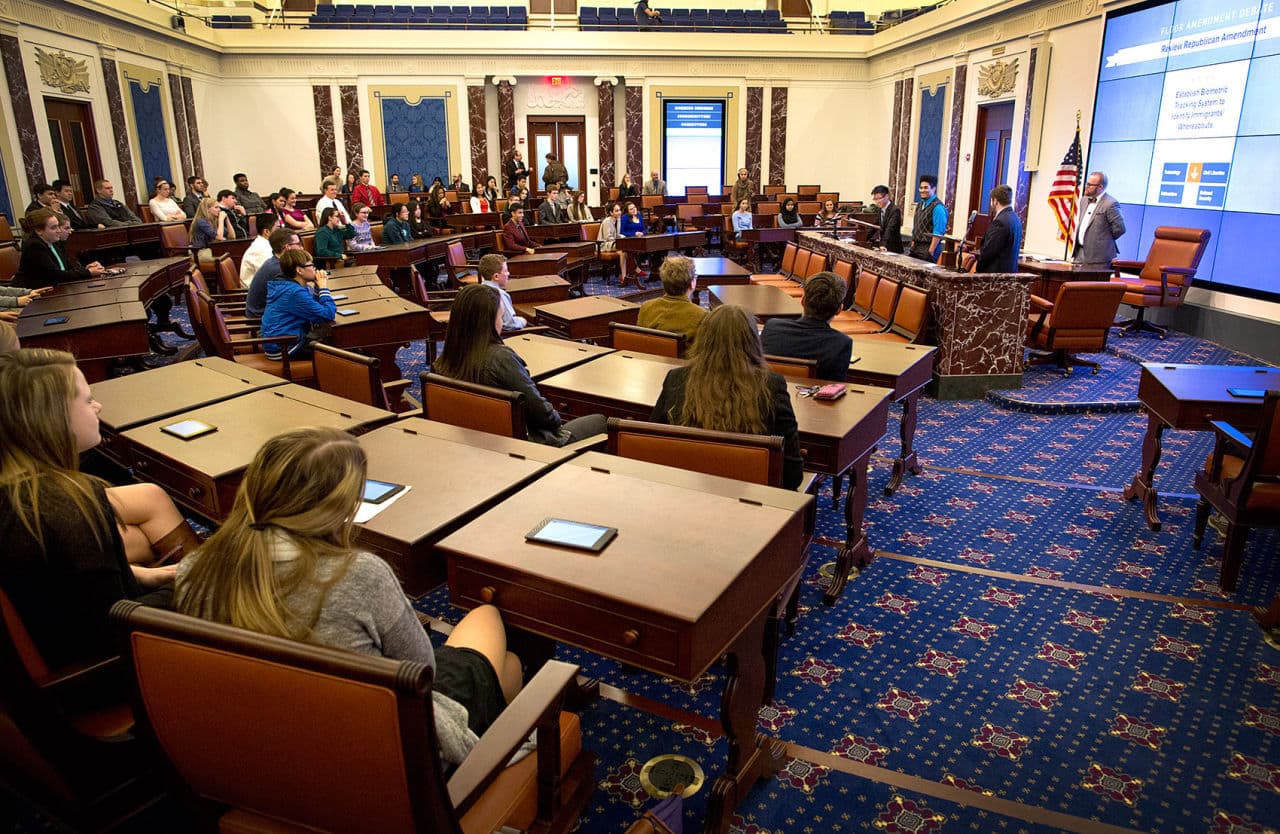
"Don't feel bad that you didn't pass comprehensive immigration reform," Wilding told the kids. "It is notable that the actual real current Senate has not been able to get through immigration reform. They passed a version last session that failed to go through the House. And they have to reconsider it now."
But that is the value of this simulation — it's an exercise in compromise.
Student Suhail Purkar (the Maryland Democrat) said he now sees the many roadblocks to passing comprehensive immigration reform more clearly.
"I don't have to go home and wonder if I'm gonna get re-elected next year, where in the real Senate, obviously, the senators have to tend to the needs of their constituents as well to the needs of the party," he said.
That newfound understanding helps him understand the real Senate better. And that is presumably what Ted Kennedy wanted.
The institute opens to the public on Tuesday, March 31.
This segment aired on March 30, 2015.
